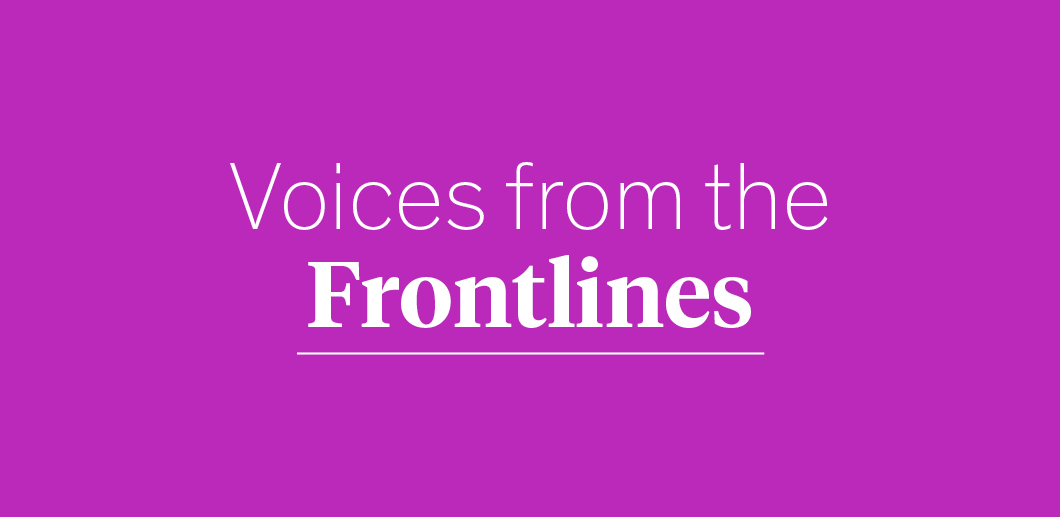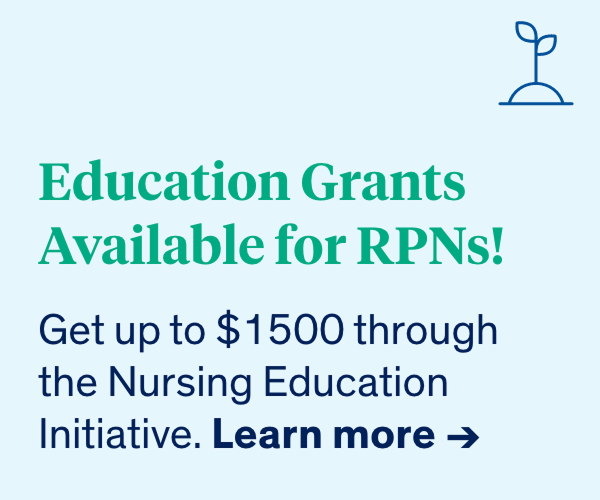As a Registered Practical Nurse fighting on the frontlines of COVID-19, this past year was one of the most challenging, frightening, and critical moments for me as a nurse. It tested all of us in ways I never imagined and confronted me with grief from a completely new perspective.
It showed me the vulnerability of patients and their unique health needs and the impact of what happens when one is forced to be separated from their social network supports and family—the things you have to do to keep yourself and your loved ones safe.
As a nurse who has faced this pandemic at full force since day one, I have faced and overcome many barriers; learned and continue to learn more about becoming resilient to the pressures of my work. This has never been truer in long-term care (LTC), which has been hit the hardest.
The LTC sector has experienced the least favourable outcomes with record-high patient deaths across many communities. This pandemic has pushed nurses to become more and more resilient with fewer resources and greater responsibilities. It has, however, taught me about leadership and the absolute necessity of working as a team. Working with one’s team members towards a common goal is what gets you through. It never ceases to amaze me how sharing little moments of joy and laughter can make a difference. Being creative and leading by example is the name of the game.
One of the greatest challenges I have faced during the pandemic has been having to call families to tell them their loved ones have died, in many cases due to COVID. I still remember the long silence that follows. I have found it’s difficult to find the right words and say them in the most compassionate and sensitive way possible. Sometimes the simple act of listening can mean everything to that family member. Shock can be unbearable even if one thinks they are prepared for the bad news.
So, how have I overcome adversity in the face of COVID-19 this past year? I have constantly reminded myself of my contributions and what this healthcare crisis can teach me. I have also thought about my own self-care and the need to be connected to my passions, now more than ever. I am staying physically active with running. I stay connected with close friends, even if it’s a little different now than it was before. As nurses on the frontlines, we all need to keep telling ourselves: we are in this together, and there will be better times ahead, no doubt. We must keep fighting for it no matter what!
About Stephanie Horner
Stephanie Horner, RPN, RPN Refresher (Hons) Humber Program, BScN, has a diverse background of nursing experiences in clinical practice, including roles in geriatric rehabilitation, home care, long-term care and retirement health care settings for patient populations with various complex and chronic care needs since 2017. She has successfully completed a number of courses such as Coronary Care 1, Post Grad Health Assessment, and Fundamentals of Hospice Palliative Care. She also has extensive training and has focused on Behavioral Interventions and Dementia Care, something very prominent in the work Stephanie has experienced with geriatric populations.
As a Registered Practical Nurse fighting on the frontlines of COVID-19, this past year was one of the most challenging, frightening, and critical moments for me as a nurse. It tested all of us in ways I never imagined and confronted me with grief from a completely new perspective.
It showed me the vulnerability of patients and their unique health needs and the impact of what happens when one is forced to be separated from their social network supports and family—the things you have to do to keep yourself and your loved ones safe.
As a nurse who has faced this pandemic at full force since day one, I have faced and overcome many barriers; learned and continue to learn more about becoming resilient to the pressures of my work. This has never been truer in long-term care (LTC), which has been hit the hardest.
The LTC sector has experienced the least favourable outcomes with record-high patient deaths across many communities. This pandemic has pushed nurses to become more and more resilient with fewer resources and greater responsibilities. It has, however, taught me about leadership and the absolute necessity of working as a team. Working with one’s team members towards a common goal is what gets you through. It never ceases to amaze me how sharing little moments of joy and laughter can make a difference. Being creative and leading by example is the name of the game.
One of the greatest challenges I have faced during the pandemic has been having to call families to tell them their loved ones have died, in many cases due to COVID. I still remember the long silence that follows. I have found it’s difficult to find the right words and say them in the most compassionate and sensitive way possible. Sometimes the simple act of listening can mean everything to that family member. Shock can be unbearable even if one thinks they are prepared for the bad news.
So, how have I overcome adversity in the face of COVID-19 this past year? I have constantly reminded myself of my contributions and what this healthcare crisis can teach me. I have also thought about my own self-care and the need to be connected to my passions, now more than ever. I am staying physically active with running. I stay connected with close friends, even if it’s a little different now than it was before. As nurses on the frontlines, we all need to keep telling ourselves: we are in this together, and there will be better times ahead, no doubt. We must keep fighting for it no matter what!
About Stephanie Horner
Stephanie Horner, RPN, RPN Refresher (Hons) Humber Program, BScN, has a diverse background of nursing experiences in clinical practice, including roles in geriatric rehabilitation, home care, long-term care and retirement health care settings for patient populations with various complex and chronic care needs since 2017. She has successfully completed a number of courses such as Coronary Care 1, Post Grad Health Assessment, and Fundamentals of Hospice Palliative Care. She also has extensive training and has focused on Behavioral Interventions and Dementia Care, something very prominent in the work Stephanie has experienced with geriatric populations.

